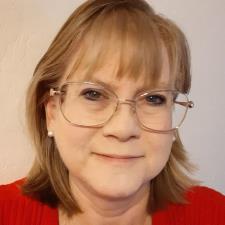
Sue H. answered • 04/01/20
Learning Specialist - Tutor and Consultant About Special Needs
I'm just checking what your question is. To answer your quiz or comprehension questions, you must look back in the text. I can help you think through the answers, but do you have more practice exercises so you can start to do this on your own? If not, contact me and I can help you learn strategies for comprehension.
One of the most popular literary figures in American literature is a woman who spent almost half of her
long life in China, a country on a continent thousands of miles from the United States. In her lifetime she
earned this country's most highly acclaimed literary award: the Pulitzer Prize, and also the most almost a household word throughout much of her lifetime because of her prolific literary output, which
consisted of some eighty - five published works, including several dozen novels, six collections of short
stories, fourteen books for children, and more than a dozen works of nonfiction. When she was eighty
years old, some twenty - five volumes were awaiting publication. Many of those books were set in China,
the land in which she spent so much of her life. Her books and her life served as a bridge between the
cultures of the East and the West. As the product of those two cultures she became as the described
herself, "mentally bifocal." Her unique background made her into an unusually interesting and versatile
human being. As we examine the life of Pearl Buck, we cannot help but be aware that we are in fact
meeting three separate people: a wife and mother, an internationally famous writer and a humanitarian
and philanthropist. One cannot really get to know Pearl Buck without learning about each of the three.
Though honored in her lifetime with the William Dean Howell Medal of the American Academy of Arts
and Letters in addition to the Nobel and Pulitzer prizes. Pearl Buck as a total human being, not only a
famous author, is a captivating subject of study.
Q1. Where is she from? Answer is inferred by the way the sentence is structured in paragraph 2 since it doesn't say exactly. I infer that she was born in the USA.
Q2. What awards did she get? The awards are stated near the end of the passage. Only the Pulitzer was mentioned earlier. William Dean Howell Medal of the American Academy of Arts and Letters in addition to the Nobel and Pulitzer prizes
Q3. Why was she considered as a household word throughout much of her life time? The answer is because of her prolific literary output. The answer is given in your 3rd section. Skill: scan for keywords. In this case scan for "household word" The reason was directly stated directly in the because of her prolific literary output.
Q4. Did she publish any books when she was an elderly? The answer is Yes. You could scan for the word "elderly," but there are other clues to find this answer. Elderly means an old person, so someone usually age 60 or older. This sentence gives the answer: When she was eighty years old, some twenty - five volumes were awaiting publication.
Section B. Synonyms
- Admired and praised: L3 Acclaimed
- Productive and creative:L6 Prolific
- Significant: L4 Famous
- A bond and link:L10 Bridge
- attractive:L18 Popular or Captivating
For most of these vocabulary words, several words in the passage could be synonyms. The L-number may be a code for looking back in your book or vocab lessons for the ones suggested in the same materials.
Section C. True - False
To do True - False items, it only takes one example to make something false. In order to be true, all of the statement must be true.
1- Pearl Back produced only fictional literary works. False. Novels and short stories are fiction or literature. Children's books can be fiction or nonfiction. Then it states nonfiction. It is the last item that makes the prompt false. "eighty - five published works, including several dozen novels, six collections of short stories, fourteen books for children, and more than a dozen works of nonfiction."
2- Pearl Back spent most of her life in USA. True. This is the clue we have to go on: "a woman who spent almost half of her long life in China, a country on a continent thousands of miles from the United States." Half is equal parts. More than half would be most. This is stated as the opposite: almost half her life means not up to half.
I hope that helps to clarify. Again, if you are working on reading comprehension in English and need help, feel free to contact me.
Sue H





Sun T.
Thank you veryyy much teacher for your great anwser.04/01/20